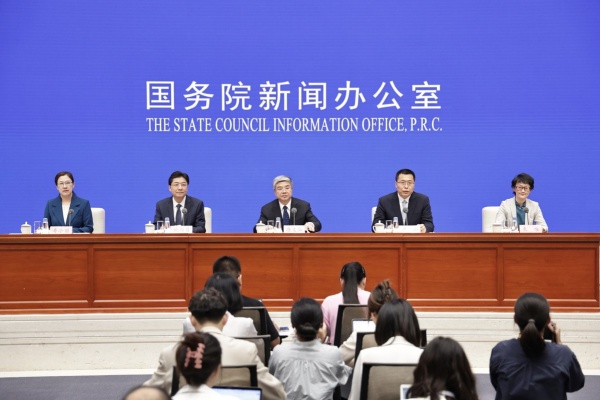
- Home
- Media Center
-
Events
- Wuzhen Summit
- Regional Forums
- Practice Cases of Jointly Building a Community with a Shared Future in Cyberspace
- World Internet Conference Awards for Pioneering Science and Technology
- The Light of Internet Expo
- Straight to Wuzhen Competition
- Global Youth Leadership Program
- WIC Distinguished Contribution Award
- Membership
- Research & Cooperation
- Digital Academy
-
Reports
- Collection of cases on Jointly Building a Community with a Shared Future in Cyberspace
- Collection of Shortlisted Achievements of World Internet Conference Awards for Pioneering Science and Technology
- Reports on Artificial Intelligence
- Reports on Cross—Border E—Commerce
- Reports on Data
- Outcomes of Think Tank Cooperation Program
- Series on Sovereignty in Cyberspace Theory and Practice
- Other Achievements
- About WIC
- 中文 | EN

30,000+ buyers to attend Global Digital Trade Expo

Leading companies from 25 countries and regions will participate in the third Global Digital Trade Expo, which will take place in Hangzhou, Zhejiang province, said Tang Wenhong, assistant minister of commerce, at a news conference in Beijing on Sept 18, 2024. [Photo/Xinhua]
The third Global Digital Trade Expo, which will take place in Hangzhou, capital of Zhejiang province, from Sept 25 to 29, is expected to provide significant opportunities for bolstering the growth of digital trade and inject strong impetus into the high-quality development of the digital economy, officials and experts said on Wednesday.
Leading companies from 25 countries and regions will participate in the expo, while the number and exhibition areas of international exhibitors will account for more than 20 percent of the total, said Tang Wenhong, assistant minister of commerce, at a news conference in Beijing.
Tang said nearly 400 new products and about one quarter of the new technologies will be showcased by foreign companies, and the number of international buyers will be nearly three times that of the previous expo.
Featuring Kazakhstan and Thailand as guests of honor, the upcoming expo will set up a future-oriented industry exhibition area for the first time, showcasing cutting-edge technologies in fields such as intelligent robots and the low-altitude economy, he said, adding that digital humans and naked-eye 3D technologies will be leveraged to enhance on-site interaction.
Tang emphasized that the digital trade has become a new development trend of international trade and an important growth driver for the global economy. The Commerce Ministry will step up policy support, improve laws and regulations, and accelerate the formulation of standards in the field of digital trade, he said.
China's import and export of digitally-delivered service trade rose 3.7 percent year-on-year to 1.42 trillion yuan ($200.4 billion) in the first six months of 2024, a new record-high, according to the Ministry of Commerce.
Moreover, the report on China's digital commerce development will be released at the expo for the first time, showcasing China's achievements and outlook in the digital commerce, given that the country places great emphasis on facilitating the development of digital economy.
Lu Shan, vice-governor of Zhejiang, said at present, over 1,500 companies have confirmed their participation, and more than 30,000 professional purchasers have registered and are expected to join in the procurement activities.
The expo will feature a comprehensive exhibition area and eight specialized zones dedicated to various digital industries, such as Silk Road e-commerce, data and finance, and artificial intelligence, Lu added.
He noted that Zhejiang has made great efforts to promote the innovative development of digital trade and the construction of comprehensive pilot zones for cross-border e-commerce, with the export scale of cross-border e-commerce ranking second across the nation.
China's cross-border e-commerce sector has seen robust growth in recent years, becoming an important driving force for bolstering development of the nation's foreign trade, industry experts said.
The country's cross-border e-commerce imports and exports reached 1.22 trillion yuan in the first half of this year, an increase of 10.5 percent year-on-year, data from the General Administration of Customs showed.
Zhang Zhouping, a senior analyst at the Internet Economy Institute, a domestic consultancy, said digital trade is a new engine for China's endeavor to build itself into a stronger trade nation, while cross-border e-commerce has emerged as a vital channel for small and medium-sized Chinese enterprises to expand in overseas markets.

The World Internet Conference (WIC) was established as an international organization on July 12, 2022, headquartered in Beijing, China. It was jointly initiated by Global System for Mobile Communication Association (GSMA), National Computer Network Emergency Response Technical Team/Coordination Center of China (CNCERT), China Internet Network Information Center (CNNIC), Alibaba Group, Tencent, and Zhijiang Lab.





